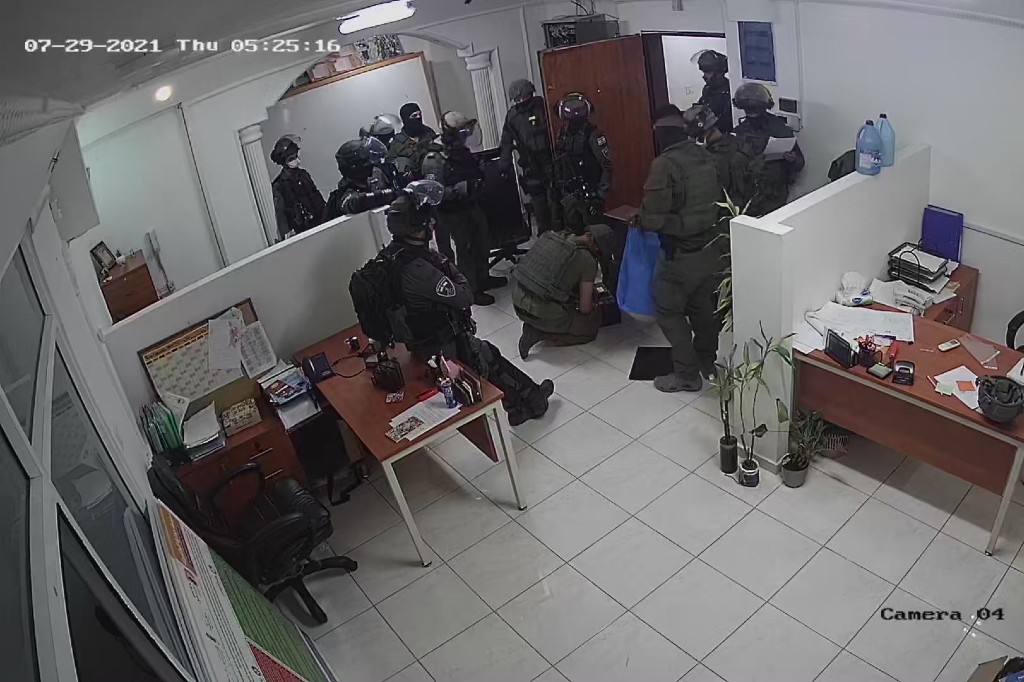first published in https://www.alliancemagazine.org/blog/author/alice-rothchild/
also posted on Charity & Security Network and featured in the subject line March 24, 2022
and posted in https://grassrootsonline.org/what-we-do/the-issues/defending-human-rights/page/2/
As a trustee of a Jewish family foundation that has contributed to Palestinian and Israeli civil society organisations over many years, I am deeply concerned by a series of developments that signal danger for the human rights sector globally.
In recent months, the Israeli government hurled smears at Amnesty International for issuing a report concluding that Israel is imposing a system of apartheid on the Palestinian people. The government is now considering punishing the messenger by stripping Amnesty’s Israel country section of its tax-exempt status and barring Amnesty staff from entering Israel. This crackdown on nonprofits extends beyond Israel’s borders as the government’s allies push for the UK and Australia to also strip those Amnesty country sections of their charitable status. And this goes well beyond Amnesty – Israel has deported a Human Rights Watch staffer, banned Israeli human rights groups from speaking to students, and criminalised the work of six venerable Palestinian non-profit organisations, creating a chilling effect on those funding and otherwise supporting them. Israeli officials are on the record stating that the goal of designating the six Palestinian NGOs ‘terrorist’ groups is to deprive these organisations of international funding. 
Israeli soldiers confiscated computer equipment and client files in a dawn raid on Defense for Children International – Palestine’s main office in Al-Bireh in the occupied West Bank on 29 July 29. Photo credit: Defense for Children International – Palestine
Every funder that supports human rights defenders, regardless of where they are in the world, should be alarmed by this precedent. When governments target human rights organisations with false accusations and smears, it creates a chilling effect on NGOs and their funders globally, weakening their ability to hold states accountable for rights violations. This establishes a dangerous precedent, and we have seen countries like Brazil, Guatemala, India, the Philippines, and Russia engage in such targeting of the human rights sector.
By trying to intimidate us into silence and inaction, the Israeli government is making us complicit in harming the very civilian populations that we have been charged to protect. Recognising what is at stake, I was proud to join more than 150 foundations and donors based in the U.S. and Europe in signing an open letter calling on the philanthropic community to continue funding Palestinian grantee partners that have already been stringently vetted through our robust due diligence processes.
In any country, civil society organisations that work with the disadvantaged and disempowered… need to be able to function freely without physical or financial threats.
The Israeli government’s use of secret evidence and confessions extracted through torture is particularly alarming. As philanthropic organisations charged with protecting human rights, we must oppose such methods of coercion. Donors should not have to fear accusations of criminal behaviour by governments because they are funding organisations engaged in legitimate humanitarian and human rights work.
To maintain our potency as a force for safeguarding humanity and the planet, the philanthropic community must defend space to debate issues and call for accountability. Concrete steps we can take include:
- continuing to fund human rights organisations based on our own consciences and due diligence, undeterred by baseless accusations;
- educating ourselves and other funders about these issues based on facts;
- vocally denouncing groundless charges and exposing the harmful targeting of civil society organisations by repressive governments;
- joining together with others in the philanthropy community to create power in numbers, including signing on to the donor letter and joining networks like the Charity and Security Network, EDGE Funders, Human Rights Funders Network, Peace and Security Funders Group, or programs like the Palestine Giving Project convened by Grassroots International;
- partnering with advocacy groups to ensure that our own governments do not become complicit in criminalising human rights organisations; and
- encouraging new donors to fund Palestinian organisations through intermediaries who already have trusted relationships on the ground, such as Global Fund for Women, Grassroots International, and the Rawa Fund.
In any country, civil society organisations that work with the disadvantaged and disempowered – in areas such as human rights, child imprisonment, rule of law, incarceration, food production, and gender issues – need to be able to function freely without physical or financial threats. Groups like the six Palestinian civil society organisations targeted provide vital direct services as well as much-needed advocacy. At a time when nationalistic, racist forces and surveillance are on the rise, we as funders must use our power to pressure governments not to go after those who are exposing human rights violations but to address the violations themselves – in this case, accusations of Israeli apartheid against Palestinians. Public awareness is growing; it is our responsibility to support and protect the vulnerable with both our voices and the power of the purse.
This is a critical time for funders to take more risk than we are accustomed to, to stand courageously with civil society partners who are working on the front lines facing government repression. If we do not speak now and counter the enormous power of state actors, we risk becoming complicit.
Alice Rothchild, MD is a retired obstetrician-gynaecologist who worked in the health care reform and women’s movements for many years. Since 1997, she has focused much of her energy on understanding the Israeli/Palestinian conflict.